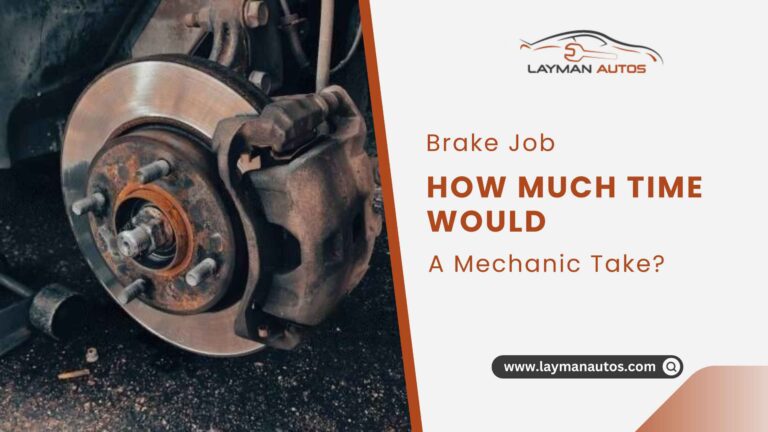How Long Can a Car Overheat Before Damage? What You Need to Know
You are on the road and consistently receiving Hot Engine warnings. Do you plan to ride to the nearest car service? If yes, the question must pop into your mind: How long Can a Car overheat Before Damage?
Car overheating is quick and takes only 30-60 seconds for actual damage. The blinking of an eye and your vehicle is the victim of the engine fire. Moreover, various engine components, such as gasket heads, pistons, and cylinders, are on the verge of blowing out.
Read the article to know the factors that affect how quickly an engine can overheat, along with the indications of an overheating car engine. Additionally, you must learn the tips and tricks that prove helpful in maintaining the engine’s temperature at optimal levels.

Factors of Engine Overheating
There are various times you encounter the issue of the engine overheating. Don’t you? The need is to comprehend the root causes and solve them one by one, not to face the concerning problem. Certain factors directly impact the engine and change its temperament from cool to overheated.
Leaking Coolant
Car coolants can make or break the condition of the engine. If checked from time to time, overheating does not hit the vehicle. The low coolant level is the priority cause of heat accumulation in the engine. In addition, if a leak occurs or is sealed by rust, the cooling system will not be able to stop the engine from becoming hot.
In addition, coolant links the water pump, radiator, thermostat, hoses, and head gasket by flowing through these components. Coolant alone will not protect the engine from catching fire if you notice severe wear in these parts.
You can check the recommended levels and, if needed, can refill it. Ensure the coolants are in the ratio of 50/50 coolant or water (per need of the vehicle).
Blocked Hoses
How do you identify the cause other than coolant leaking? These blocked hoses accumulate dirt from the roadside and prove barricade in circulating the fluid from the cooling system. Eventually, your engine starts overheating.
Defective Water Pump
You never know if the real culprit lies in the cooling system and preventing coolant from flowing in the cooling system. The water pump is an essential component of the cooling system and is prone to damage by rust and debris accumulation. When the water pump does not work adequately, the cooling system will deteriorate, compensating for the engine’s excess heat.
Malfunctioning Temperature Sensor
Modern engines have been installed with temperature sensors to tell you about the health of an engine. These gauges make it easier by sending a notification from the sensors about overheating. Any fault in the temperature sensors will leave you empty-handed and not provide an adequate reading.
Cooling Fan or Radiator Issues
Radiators are the central control unit of a vehicle’s cooling system in preventing the engine from overheating. Cooling fans are delegated to discharge heat from the car’s interiors to the surroundings. Improperly functioned fans never let hot air blow outside, and the inside coolant will remain hot. The primary factors for hot engines and subsequent overheating.
Incompatible Coolant
The coolant you utilize may not match well with the cooling mechanism. Every vehicle has different requirements, and consulting from the owner’s manual instructions helps you find the suitable coolant that fixes overheating problems.
Signs of Overheating
Gearing up to combat the overheating engine, but do not know the leading signs. You need to identify the problematic areas to shield your car from reaching deathbed. The following are indications that your car has started overheating. Take quick action and find the best solution before it’s too late.
- Engine power is reduced
- Burning smell
- Smoke and vapors coming out
- Thumping/ Ticking Noise
- Hot Hood
- The temperature gauge will shift to the red portion

What Happens to an Engine When it Overheats?
Generally, vehicles operate between 195 and 200 degrees Fahrenheit. Engine overheating happens in no time but leaves its effects to last a long. The most prominent damage is seen in the engine, head gaskets, cylinders, pistons, and valves. You think you can delay engine overheating problems, but that’s not the case. Look for some significant damages that the car overheats did to your vehicle.
Blown-up Head Gasket
Overheating attack the head gasket and cause it to blow out. It is the part that serves as a barrier between hot gases and the engine coolant and is hidden from the eyes at the time of assembly.
Also, gaskets are linked with other components and thus spread their deterioration to the cooling system and harm radiators, leak coolant, and whatnot. You can see the following indications to guess the gasket’s condition.
- The integrity of the cooling system is slow
- Leaking coolant
- Bubbles appear on the radiator of the vehicle
- Discharge of milk-like oil
- White exhaust smoke
Cracked Engine Block
The engine needs a lot of power to ignite the air-fuel mixture, so excess heat is generated in response. The durable material of the engine block is also not devoid of overheating and increases the chance of cracking.
Explode Pistons
If the engine overheats up to the degree of 20 to 40 Fahrenheit above than recommended levels, it may become the cause of engine knocking. Continuing driving or not pulling over will cause the piston to crack and shatter the piston’s rings.
Seized Valves
When you notice the car’s engine generates a rattling noise, it indicates that it reaches several degrees, 40 to 80 higher than standard temperature, and poses a threat to the engine’s interior, bearings, and valves.
Total Engine Meltdown
Sometimes there is a situation or enough heat production within the engine that causes it to total meltdown. You cannot help but look for a replacement for the damaged components like the engine block, rods, timing chain, ignition system, and crankshaft.
Note: The engine’s total breakdown occurs when it exceeds 100+ degrees above standard engine temperature.
Tips for Maintaining Proper Engine Temperature
However, both temperatures are not suitable for the engine’s health. You must take care of the vehicle so that it does not meet several reasons that force it to overheat. A few preventive measures await you to ponder, avoiding engine damage from overheating.
Regular Maintenance
Your vehicle is a lifetime investment and requires complete car maintenance. In keeping the engine in good condition, you should do your tasks and leave the rest to experts, repairing engine damage from overheating.
- Tightly seal the radiator cap.
- Ensure replacing the engine oils and other lubricants
- Check for visible leakages
- Replace faulty wirings
- The cooling system must be in workable condition
- Keep aside the excess dirt and debris
Temperature Gauge
The temperature gauge provides first-hand knowledge about the engine’s fluctuating temperature. Ensure the readings are correct, which depends on the adequate functioning of temperature sensors.
Exposure to Sunlight
Ensure the vehicle, especially the engine part, does not face extreme sunlight. The engine overheating is not an internal phenomenon; it can be due to the harsh sun rays.
Pro Tip: try parking your car within the shaded circumference.
Extra Coolant
A coolant/antifreeze mixture is essential in keeping the engine’s temperature down and ensuring its proper functioning. It circulates via cooling fans, water pumps, and radiators, absorbing excess heat. Remember to keep the extra coolant with you while inching on the road.
Bottom Line
Engine overheating keeps you standing in the maze. This article is a beneficial guide on how to keep yourself calm while taking care of the engine. At the same time, you will learn what happens when the engine overheats when not paying attention to the prominent indications or warnings.
Frequently Asked Questions
How long can you drive if your car is overheating?
As the time is less, so does the distance. The maximum you can drive with an overheating vehicle is about ¼ mile. Also, do not put yourself at risk by going farther than 20 miles.
Can I pour water on my engine to cool it down?
You can put water into the engine to cool it down. Since a low coolant level causes the engine to overheat, pouring water will relax you as it temporarily fixes the problem.
Should I leave car windows open when it’s hot?
Car windows have glass that insulates heat inside. To escape it outside, you must slightly let the car windows open. Remember the window opening as little as the width of a person’s arms because safety matters.

